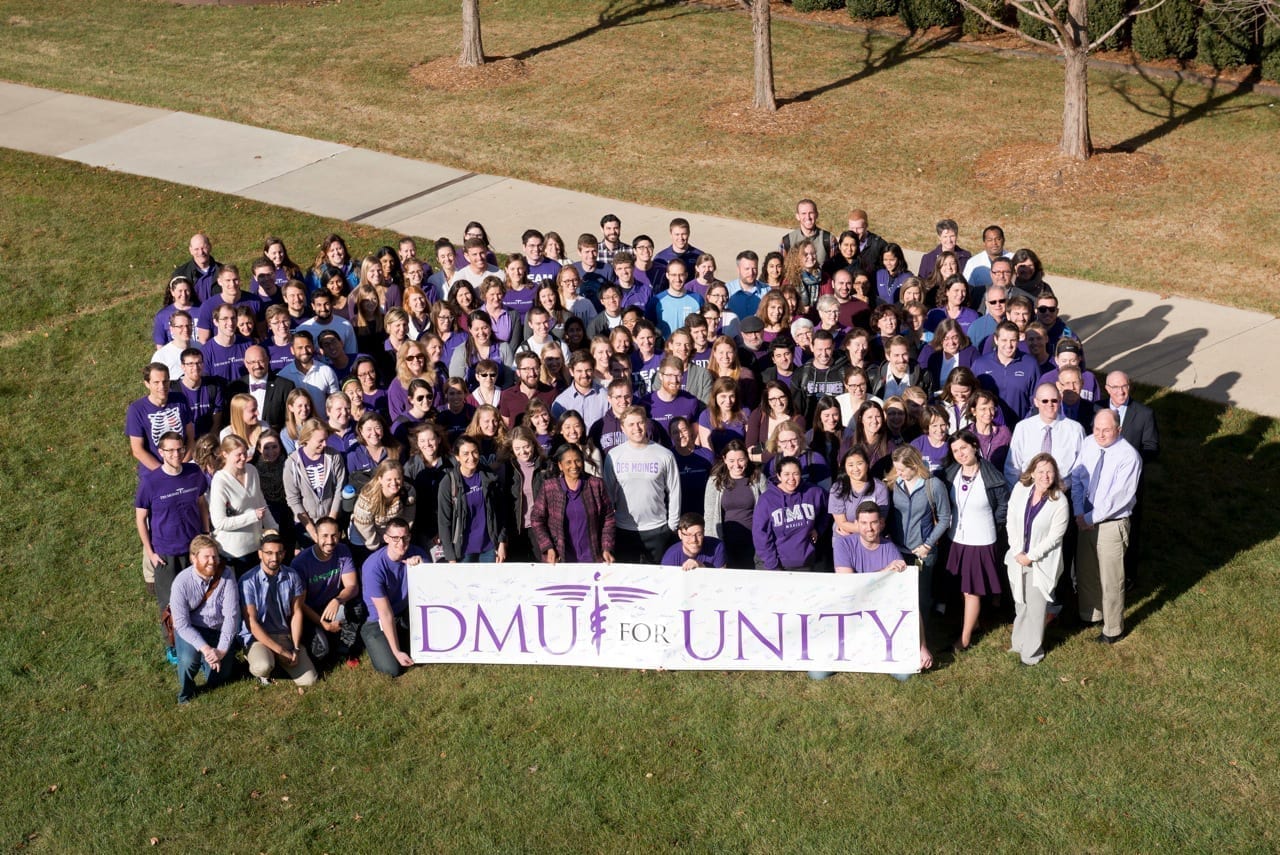More than 200 Des Moines University students, faculty and staff gathered on campus today to stand together in support of our first ever DMU Day of Unity.
Students decided to coordinate a Day of Unity in light of an increasingly divided and charged political climate developing around the country—one which has left people of many different identities, beliefs and values, including DMU students, feeling uncomfortable, targeted or misunderstood. By participating, all involved affirmed inclusiveness, one of the University’s values, and sent a message in favor of a campus community where diverse identities and respectful and open dialogue are valued.
Participants, many clad in DMU purple, also signed a giant banner with the words, “DMU for UNITY.” The banner will be prominently displayed on campus for the next two weeks.
“At DMU, we live our mission as one university,” University President Angela Walker Franklin, Ph.D., told the crowd. “There could not be a better opportunity to show our unity and that we want to foster an environment for all people.”
DMU Day of Unity was among several campus events held after the 2016 elections that provided safe, open environments for students, faculty and staff to speak honestly about their concerns, hopes and fears.
“DMU is committed to being respectful of all perspectives. We value that,” Richard Salas, Ph.D., DMU’s multicultural affairs director, said at the Day of Unity. “We have to be culturally responsive to meet the needs of patients regardless of who they are.”
President Franklin emphasized the importance of that mission with her editorial, which appeared in the Des Moines Register on Nov. 24, titled “It’s time for compassion and understanding to reign.” She noted the post-election atmosphere “has underscored deep philosophical and ethical divisions in all corners of our nation—and in ways not felt since the 1960s.”
President Franklin held up DMU’s mission of educating diverse groups of highly competent and compassionate health professionals and its core value of inclusiveness as important to the “process of healing, resolution and understanding” the nation needs.
“We are a stronger nation if we can remain committed to the advancement of diversity, compassion and productive civil discourse,” she stated. “Those are essential, governing tenets in a university and a national democracy.”


